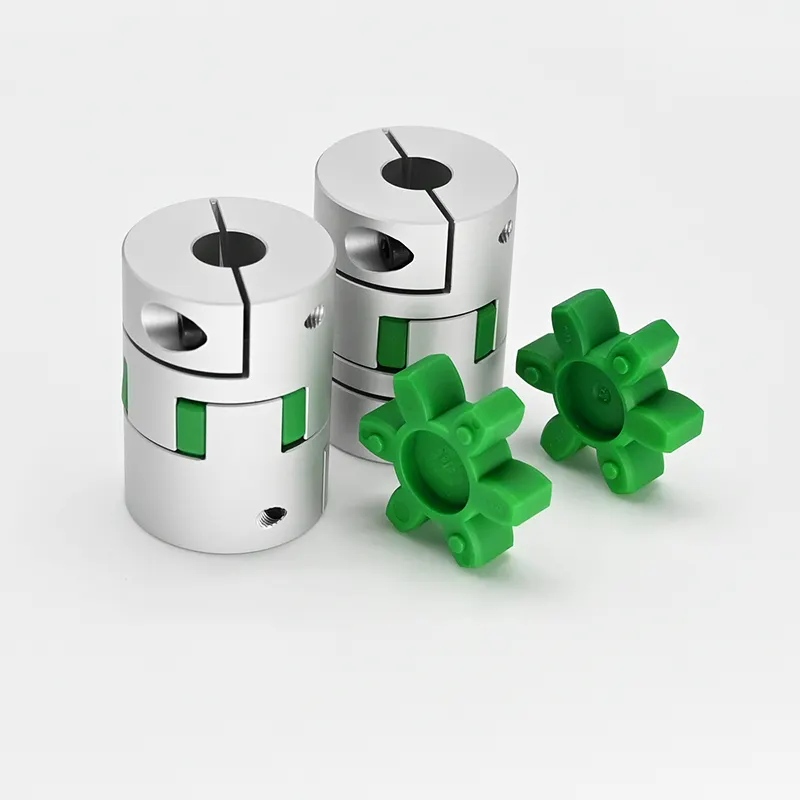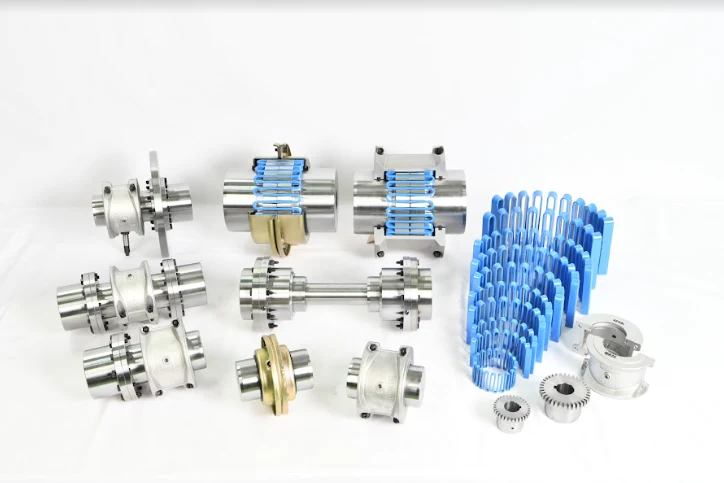Product Description
Product description
|
Material |
Materials for silicon,fluorine,NBR,FPM,EPDM,SILCONE ACM,HNBR |
| Inspection Equipments | Excellent chemical and physical property, excellent oil- resistance, high temperature stability, etc. |
| Tolerance | +/-0.05mm |
| Drawing Format | PDF/DWG/DXF/IGS/STEP,etc |
| Application field | Parts are used on vehicles, printing machines, food processing machines, textile machines, electronic machines, etc. |
| Manufacturing process | CNC machining Broaching, Drilling, Milling, Other Machining Services, Rapid Prototyping, Turning, |
| Shape | As per your drawing Or your sample |
| Color service | Customization |
| QC inspection |
Make sure 100% inspection before the delivery |
| Advantages | Maintenance,acturally HRC coupling doesn’t need maintenance. |
| Environmental, elastic components make HRC coupling applies to a variety of working conditions. | |
|
Reliable transmission, in case of elastic component is damaged, the dog segment wichcasted siamesedly still keep the transmission processing reliably. |
|
|
Economic, HRC couplings have already been made of optimization design,which make transmission power match the transmission shaft diameter. |
|
| Good recovery capacity, elastic components can reduce the load at the CZPT moments, and the deviation is a major consideration when designing. | |
|
Adaptability of misalignment, HRC can coupling contains parallel shift, angle shift and axis shift which happen some times. |
Application and analysis
Our warehouse
Custom rubber parts
Custom plastic parts
Packing & Delivery
Packaging Details: plastic bag packing inside, carton packing outside, or customized packing.
Port:Xihu (West Lake) Dis.g port, ZheJiang city.
Lead Time :
| Quantity(Pieces) | 1 – 1000 | 1001 – 10000 | 10001 – 50000 | >50000 |
| Est. Time(days) | 5 | 12 | 18 | To be negotiated |
Place order steps
Our Services:
1. Convenient: 24th Hours sales/After-sales Service online or on the phone.
2. Quality Assurance: We will discuss with you and supply you the best quality comfortable to your market.
3. Quick delivery: Time is money, we promise we always will deliver the goods quicker than others.
4. According to customers’ drawing,customized specifications are welcomed.
5. Small orders can be accepted.
Packing
Company Profile
SHEN ZHOU CZPT RUBBER & PLASTIC CO.,LTD was founded in 2000. The factory located in industrial zone of HangZhou city, ZheJiang province, china.
We have Plastic injection molding workshop and rubber compression molding workshops.Our main products includes Bakelit Knobs,Pull Handle,rubber door stops, door guard, roller, rubber bumpers, Rubber grommets, vibration dampers, seals, plastic corner, injection plastic brackets, injection plastic shell.to undertake various kinds of rubber molding and plastic injection parts, customize according to drawing and samples.
The products have been exported to America, Europe, Oceania, Middle East, Southeast Asia and other regions and countries, and hope to build more business Cooperation with new client from all over the world.
FAQ
Q1: Are you a manufacturer or a trading company?
A1: We are the original manufacturer of custom rubber parts and custom plastic parts.
Q2: Where is your company located?
A2: Our company is located in HangZhou City, ZheJiang Province, China.
Q3: Could I get free samples?
A3: We could provide small samples for free, but air freight or sea freight should be borne by customer side.
Q4: What should I provide in order to get an offer?
A4: Customers are required to provide material, inner diameter, outer diameter, cross section distance and quantity.
Q5: How is the goods packed by your factory?
A5: The goods are normally packed by plastic bags, carton boxes with pallets or wooden boxes.
Q6: What are the incoterms applied?
A6: The incoterms applied are FOB, CIF and CFR.
Q7: What are the payment terms accepted?
A7: We accept Alibaba Trade Assurance, T/T, L/C and West Union.
Q8: What about the delivery time?
A8: The goods are normally dellivered to customer side within 7-30 days based CZPT the mode of transport required.

Can Industrial Couplings Accommodate Varying Torque and Speed Requirements in Machinery?
Yes, industrial couplings are designed to accommodate varying torque and speed requirements in machinery. Couplings play a crucial role in transmitting power between connected shafts while allowing for some degree of flexibility and compensation for misalignment. They come in different types and configurations, each tailored to specific applications and operating conditions.
Accommodating Varying Torque Requirements:
Industrial couplings are available in a wide range of sizes and designs, allowing them to handle a broad spectrum of torque capacities. The torque capacity of a coupling depends on factors such as the coupling’s material, size, and construction. For heavy-duty applications with high torque requirements, couplings like gear couplings or grid couplings are suitable choices. On the other hand, elastomeric couplings or diaphragm couplings are commonly used for applications with lower torque demands.
Furthermore, some couplings, such as torque-limiting couplings or overload couplings, are designed to protect machinery from sudden torque spikes or overloads. These couplings disengage temporarily when the torque exceeds a preset limit, preventing damage to the machinery.
Accommodating Varying Speed Requirements:
Industrial couplings can also handle varying speed requirements encountered in different machinery setups. The coupling’s speed capability is influenced by factors such as the material, design, and balancing. For high-speed applications, couplings like flexible disc couplings or metal bellows couplings are commonly used due to their excellent balance characteristics and ability to dampen vibrations at high speeds.
Additionally, some couplings, such as variable-speed couplings, can actively adjust their characteristics to match changing speed requirements. These couplings offer flexibility in power transmission and can optimize efficiency across a wide range of operating speeds.
Customization for Specific Requirements:
Industrial couplings can be customized or selected with specific torque and speed requirements in mind. Manufacturers often provide technical support to engineers and designers to help them choose the most suitable coupling for their applications. By considering factors like operating conditions, load profiles, and the machinery’s torque-speed characteristics, engineers can select or design couplings that precisely match the requirements of the machinery.
In conclusion, industrial couplings are versatile and can accommodate varying torque and speed requirements in machinery. Proper selection and design of the coupling are essential to ensure efficient power transmission, longevity of the machinery, and overall system performance.

Specific Couplings Designed for High-Temperature or Corrosive Environments
Yes, there are specific couplings designed to operate in high-temperature or corrosive environments. These specialized couplings are constructed using materials and designs that can withstand extreme conditions without compromising performance. Here are some examples of couplings tailored for such environments:
- High-Temperature Couplings: In applications where machinery operates at elevated temperatures, standard couplings made of conventional materials may not be suitable due to their limited thermal resistance. High-temperature couplings are engineered with materials like heat-resistant alloys or ceramics that can withstand extreme heat without degrading or losing their mechanical properties. These couplings are often used in industries such as steel manufacturing, glass production, and aerospace, where the equipment encounters high temperatures during normal operation.
- Corrosion-Resistant Couplings: Industries dealing with corrosive substances or harsh environments require couplings that can resist chemical attack and degradation. Corrosion-resistant couplings are typically made of stainless steel or other alloys with excellent corrosion resistance properties. These couplings protect against the effects of acids, alkaline solutions, and other corrosive elements, ensuring a longer service life and reliable operation. They are commonly used in chemical processing, petrochemical, and marine applications.
- Composite Couplings: Composite materials can offer a combination of properties that make them suitable for challenging environments. For instance, fiber-reinforced composite couplings can provide high strength, lightweight, and resistance to both high temperatures and corrosive substances. These couplings find applications in aerospace, automotive, and other industries where weight reduction and durability are crucial factors.
- Non-Metallic Couplings: Non-metallic couplings made of materials like plastic or reinforced polymers offer excellent resistance to corrosion, chemicals, and extreme temperatures. These couplings are often used in food and beverage processing, pharmaceuticals, and other industries where hygienic conditions and resistance to aggressive substances are essential.
It is crucial to select the appropriate coupling that matches the specific requirements of the operating environment. Using standard couplings in high-temperature or corrosive settings can lead to premature failure, increased maintenance, and safety risks. By opting for couplings designed explicitly for such conditions, industries can ensure the reliability and longevity of their equipment and maintain optimal performance even in the most challenging environments.

Advantages and Disadvantages of Using Flexible Couplings in Industrial Setups
Flexible couplings offer several advantages in industrial setups, but they also come with some disadvantages. Here’s a detailed overview of both aspects:
Advantages:
- Misalignment Compensation: Flexible couplings can compensate for various types of misalignment, including angular, axial, and parallel misalignment. This capability reduces stress on connected machinery, bearings, and shafts, resulting in extended component life and improved reliability.
- Vibration Dampening: Flexible couplings can absorb and dampen vibrations, preventing them from being transmitted to other parts of the machinery or equipment. This feature helps reduce noise and minimizes wear and tear on the system, leading to smoother operation and decreased maintenance requirements.
- Shock Absorption: Some types of flexible couplings, such as grid and elastomeric couplings, offer excellent shock absorption properties. They can handle sudden load changes and impacts, making them suitable for applications with varying loads or in environments prone to shock forces.
- Torsional Flexibility: Flexible couplings provide torsional flexibility, allowing for slight angular displacement between connected shafts. This flexibility helps prevent torsional vibrations and mechanical resonance, improving the overall stability and performance of the machinery.
- Easy Installation and Maintenance: Most flexible couplings are relatively easy to install and require minimal maintenance. They often do not need lubrication, reducing maintenance efforts and downtime, which can result in cost savings.
- Cost-Effective Solution: Flexible couplings are often more cost-effective than rigid couplings, especially in applications where misalignment compensation and shock absorption are required. They offer a balance between performance and affordability.
Disadvantages:
- Backlash: Some flexible couplings introduce a certain amount of backlash or angular play due to their design. In precision applications, this backlash may result in reduced accuracy and positioning errors.
- Lower Torque Capacity: Compared to some rigid couplings, flexible couplings generally have lower torque capacity. In high-torque applications, careful selection is essential to ensure the coupling can handle the required torque without slipping or failing.
- Limitations on High-Speed Applications: Some types of flexible couplings may have limitations in high-speed applications due to factors like balancing requirements or resonance effects.
- Finite Lifespan: Flexible couplings have a finite lifespan and may require periodic replacement, especially in demanding or high-load applications.
When choosing whether to use flexible couplings in an industrial setup, engineers should carefully consider the specific requirements and operating conditions of the application. While flexible couplings offer significant advantages, they may not be suitable for every scenario. Proper selection and regular maintenance of the coupling can ensure optimal performance and extend its lifespan, contributing to the overall efficiency and reliability of the industrial system.


editor by CX 2023-08-21
